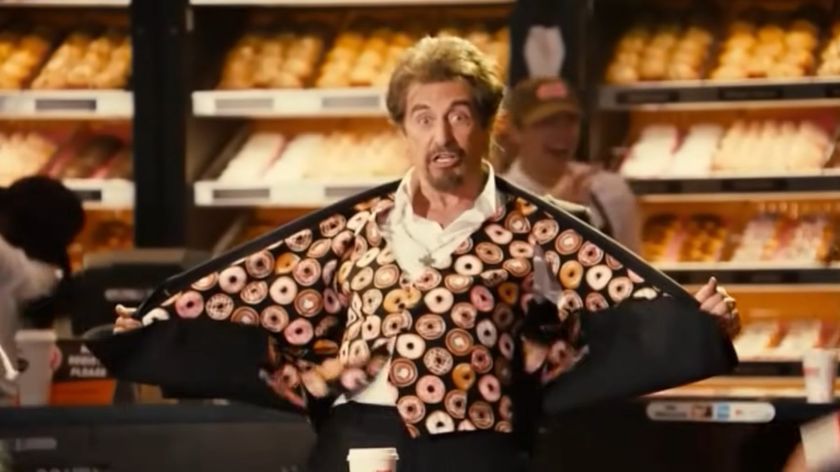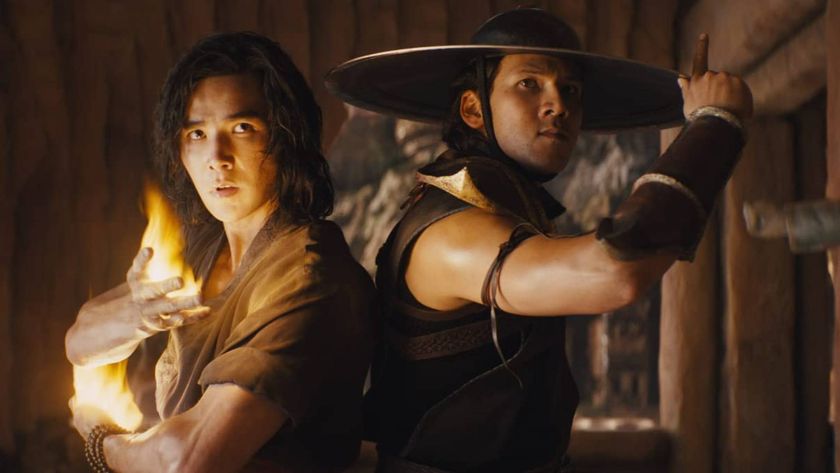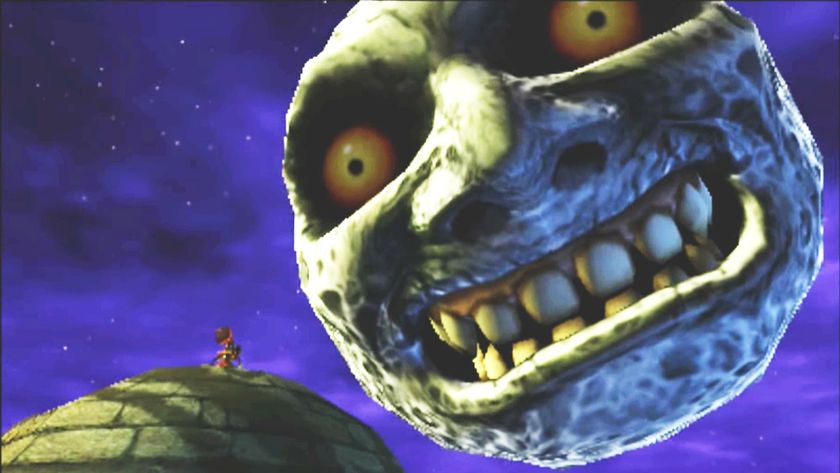How Bacurau turns spaghetti westerns, Mad Max, and Hostel into something distinctly Brazilian
Total Film shares its early verdict on on the South American Palme d'Or contender from Cannes 2019
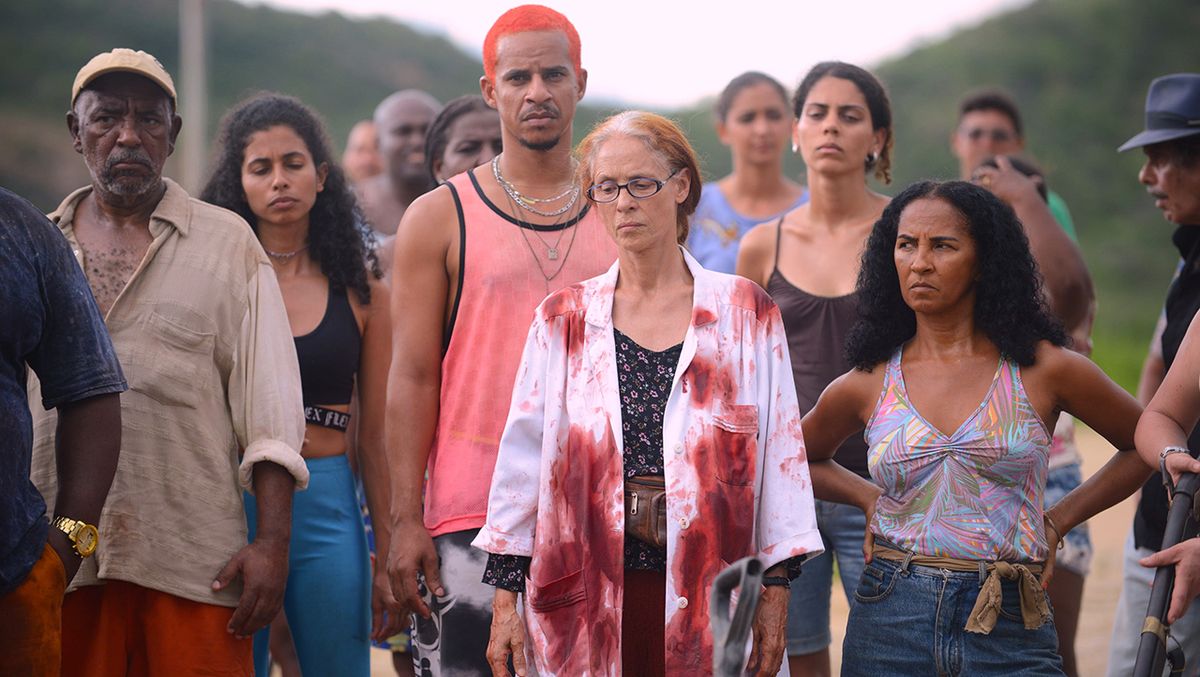
Having wowed world-cinema audiences with Neighbouring Sounds and Aquarius, Brazilian filmmaker Kleber Mendonça Filho (here co-directing with his producer Juliano Dornelles) takes a surprise turn with Bacurau, a film leaning into genre cinema to deliver a somewhat saggy, violent thriller indebted to the likes of A Fistful Of Dollars, Mad Max, and Hostel.

For more coverage from Cannes 2019, be sure to follow Total Film. If you like what you see, don't forget that you can subscribe to Total Film magazine to get more like this delivered straight to your doorstep every month of the year.
Set in the Brazilian outback a few years from now, Bacurau begins as Teresa (Barbara Colen) returns to the titular hometown for her grandmother’s funeral. It’s a tumbledown settlement, deprived of water because of a dam dispute between smarmy mayor Tony Jr (Thardelly Lima) and the authorities. Teresa rides into town in the water tanker that keeps the locals from perishing, and brings with her medicines for the local doctor, Domingas (Sonia Braga, she of Aquarius’ towering central performance).
Things are clearly not right. On the road outside Bacarau, several coffins litter the way, while the town has suddenly vanished off Google Maps and all phone signals have died. Soon the residents will flatline too, for it transpires that a group of weapon-wielding American tourists led by a crazed German (Udo Kier, naturally) are about to wade into town on a big-money safari in which humans are the unwitting prey.
Eccentric action
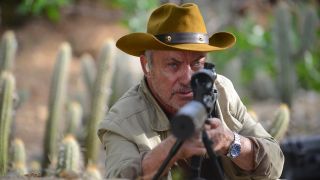
It sounds like a riot and parts of it are, though Mendonça and Filho are perhaps too keen to litter in allusions, with a touch of psychotropic bedlam here, a dash of synthesiser there, and parched, sweat-stained, mad-eyed locals here, there and everywhere, suggesting, respectively, the movies of Alejandro Jodorowsky, John Carpenter, and Ted Kotcheff’s intensely disturbing Wake in Fright. The idea of humans as the ultimate game, meanwhile, is a goodie but an oldie, stretching back to 1932’s The Most Dangerous Game and taking in, to name just a few, The Tenth Victim, Turkey Shoot, Surviving The Game, The Running Man and Hard Target. There’s also the presence of a drone that looks like a flying saucer to add a little sci-fi weirdness to the heady mix.
And yet Bacarau often occupies an odd middle ground between action-thriller and study of an impoverished, eccentric community. It doesn’t quite succeed as either, with the oddball locals too colourful to be taken entirely seriously, and the set-pieces delivering plenty of booming gunshots and impactful violence, but lacking anything like the movement and muscularity of Akira Kurosawa’s 1954 classic Seven Samurai – yet another key influence. There’s also a lack of tension, which is odd given just how controlled and ominous Neighbouring Sounds is, with its sound design alone making the skin prickle.
There’s plenty here to admire – we haven’t even mentioned the strident satire that puts Brazilian president Jair Bolsonaro in the crosshairs – but Bacurau feels like a diversion in a directorial career destined for greatness.
For more Cannes 2019 coverage, read our report from John Carpenter's onstage Q&A.
Sign up for the Total Film Newsletter
Bringing all the latest movie news, features, and reviews to your inbox
Jamie Graham is the Editor-at-Large of Total Film magazine. You'll likely find them around these parts reviewing the biggest films on the planet and speaking to some of the biggest stars in the business – that's just what Jamie does. Jamie has also written for outlets like SFX and the Sunday Times Culture, and appeared on podcasts exploring the wondrous worlds of occult and horror.
Most Popular





